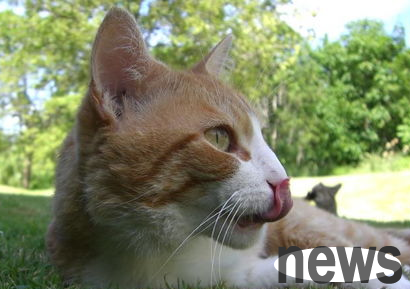We often see dogs drooling, but rarely see cats drooling, why don’t cats drooling? Can cats drooling? In fact, cats drooling, but we only find less, and we should pay attention when cats drooling, because one of the reasons why cats drooling is that...
We often see dogs drooling, but rarely see cats drooling, why don’t cats drooling? Can cats drooling? In fact, cats drooling, but we only find less, and we should pay attention when cats drooling, because one of the reasons why cats drooling is that cats are sick.

1. A cat is sick
Oral diseases, digestive tract diseases, and some viral infections will cause the cat to drool. When you cannot tell why the cat is drooling, it is best to take the cat to the pet hospital for a check-up. If you are drooling because of illness, you should cooperate with the veterinarian to treat it immediately. If you are sure that the cat is not sick, you need to look for other reasons.

2. Conditioned reflex
Some owners will intimate with the cat for a while before meals. Over time, the cat will develop a conditioned reflex of "will eat food after being intimate with the owner". So every time you are intimate with it, it will know that it can eat after a while, and saliva will flow out involuntarily.
3. Severe glands are stimulated
Facts have proved that cats are most likely to drool when lying on their owner's legs. The principle is the same as people drool when they sleep on the table - saliva is stimulated and drool is drained. In addition, the owner may also stimulate their salivary glands when touching the cat's face. If you don't want the cat to drool continuously, you might as well transfer the touching area.